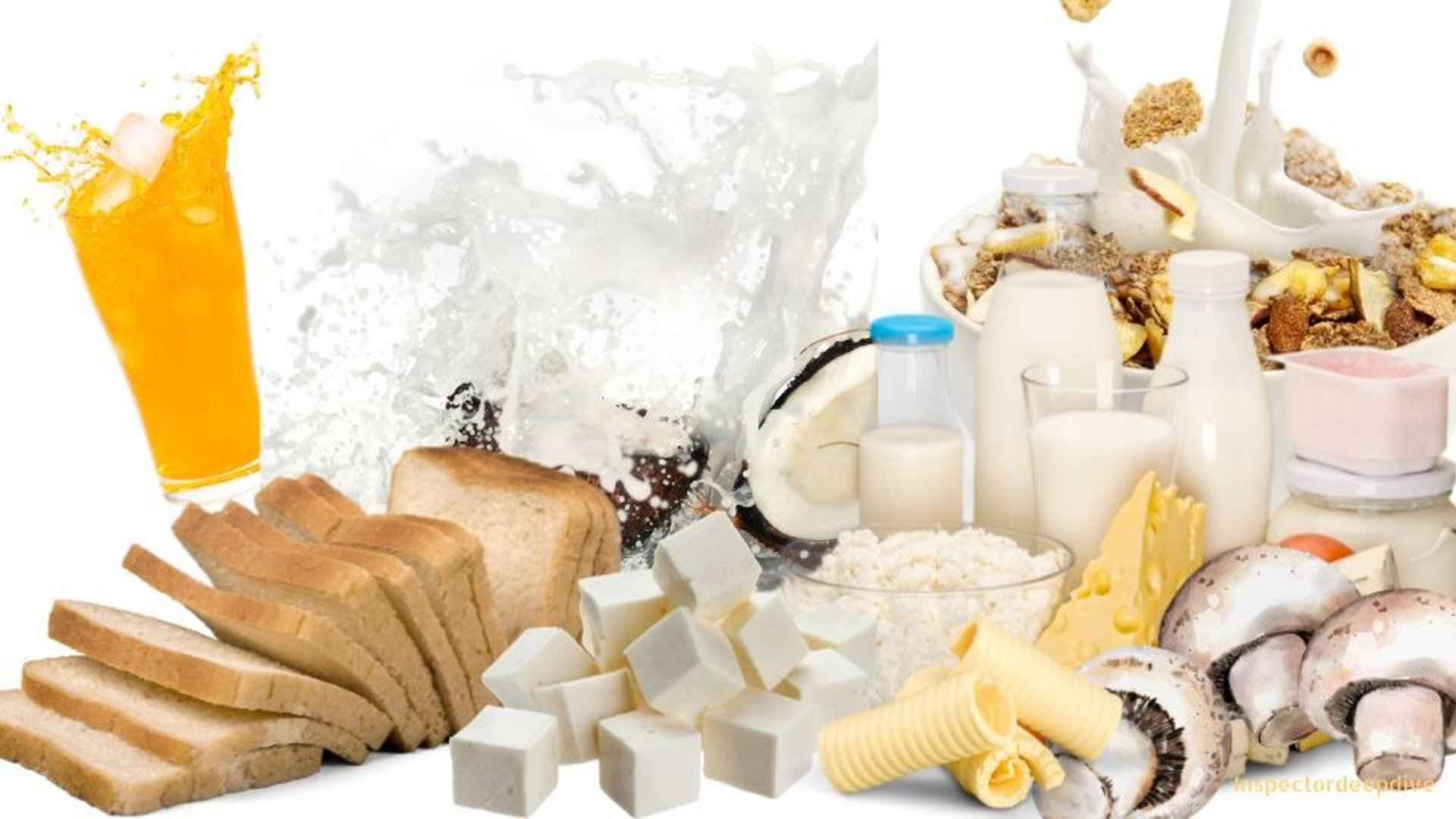Vitamin D2 Benefits: Plant-Based Vitamin D Sources and Health Benefits

Vitamin D2 Benefits: Plant-Based Vitamin D Sources and Health Benefits
Vitamin D2, also known as ergocalciferol, represents a crucial bridge between the plant kingdom and human health. Unlike its counterpart vitamin D3, which is primarily derived from animal sources and sunlight exposure, vitamin D2 emerges from the fungal and plant world, offering a vital plant-based alternative for those seeking to maintain optimal vitamin D levels.
This remarkable nutrient begins its journey in the cell walls of mushrooms and yeasts, where ergosterol - a plant sterol - transforms into vitamin D2 when exposed to ultraviolet light. This natural process mirrors how human skin produces vitamin D3 from cholesterol when exposed to sunlight, creating a fascinating parallel between plant and animal vitamin D synthesis.
For vegans, vegetarians, and those with dietary restrictions, vitamin D2 provides an essential pathway to meeting vitamin D requirements without compromising dietary principles. However, the story of vitamin D2 extends far beyond mere dietary accommodation - it represents a unique form of this vital nutrient with distinct properties and benefits.
What Is Vitamin D2?
Vitamin D2 (ergocalciferol) is a fat-soluble vitamin that plays a crucial role in calcium absorption, bone health, immune function, and cellular growth. Unlike vitamin D3 (cholecalciferol) which is synthesized in human skin and found in animal products, vitamin D2 is primarily derived from plant sources and fungi, making it the preferred choice for plant-based diets.
The molecular structure of vitamin D2 differs from D3 by having an additional methyl group and a double bond, which affects how it's metabolized in the body. This structural difference leads to distinct metabolic pathways and potentially different health outcomes.
Plant-Based Sources of Vitamin D2
Mushrooms: The richest natural source of vitamin D2, particularly varieties exposed to UV light. Portobello, maitake, morel, and UV-exposed button mushrooms can provide significant amounts.
Fortified Foods: Many plant-based milks (soy, almond, oat), cereals, and nutritional yeast are fortified with vitamin D2.
Yeast Products: Brewer's yeast and nutritional yeast exposed to UV light contain notable amounts of vitamin D2.
Supplements: Vegan vitamin D2 supplements derived from yeast or mushrooms offer reliable dosing for those with limited sun exposure.
2025 Scientific Breakthroughs
Recent research has revealed groundbreaking discoveries about vitamin D2's unique properties. Studies in 2024-2025 show that vitamin D2 may have enhanced anti-inflammatory effects compared to other forms, particularly in autoimmune conditions. Emerging evidence suggests that ergocalciferol demonstrates superior tissue distribution in certain organs, potentially offering targeted protection for cardiovascular health.
New findings indicate that vitamin D2 supplementation may be more effective than previously thought for maintaining consistent blood levels over 24-hour periods. Additionally, researchers have discovered that vitamin D2 exhibits unique gene expression patterns that may provide distinct immune-modulating benefits, particularly in respiratory health and infection prevention.
Recent clinical trials have also highlighted vitamin D2's potential role in supporting gut microbiome diversity and reducing inflammatory markers in individuals with metabolic syndrome. Furthermore, studies suggest that vitamin D2 may have enhanced neuroprotective properties, showing promise in supporting cognitive function and potentially reducing dementia risk.
Health Benefits of Vitamin D2
Bone Health: Vitamin D2 enhances calcium absorption in the intestines and supports bone mineralization, helping prevent osteoporosis and fractures. Recent studies suggest it may be particularly effective in postmenopausal women.
Immune System Support: Research indicates that vitamin D2 may modulate immune responses, potentially reducing inflammation and supporting immune balance.
Cardiovascular Health: Emerging evidence suggests vitamin D2 may have unique cardioprotective effects, including supporting healthy blood pressure and reducing arterial stiffness.
Cancer Prevention: Studies show that adequate vitamin D2 levels may reduce the risk of certain cancers, particularly colorectal and breast cancers, through enhanced cellular differentiation and apoptosis.
Mental Health: Recent research highlights vitamin D2's potential role in supporting mood regulation and reducing depression risk, particularly in individuals with limited sun exposure.
Pregnancy Support: Vitamin D2 plays a crucial role in fetal development and may reduce the risk of pregnancy complications including gestational diabetes and preeclampsia.
How Vitamin D2 Works in the Body
Once consumed, vitamin D2 is absorbed in the small intestine along with dietary fats and transported to the liver, where it's converted to 25-hydroxyvitamin D2 (calcifediol). This compound then circulates in the blood as a storage form and is further converted in the kidneys to its active form, calcitriol.
The active form of vitamin D2 then binds to vitamin D receptors throughout the body, influencing gene expression and cellular function in over 200 different genes. This widespread influence explains vitamin D2's diverse health effects.
Recommended Daily Allowance (RDA)
Infants (0-12 months): 10 mcg/day (400 IU)
Children (1-18 years): 15 mcg/day (600 IU)
Adults (19-70 years): 15 mcg/day (600 IU)
Adults (70+ years): 20 mcg/day (800 IU)
Pregnant Women: 15 mcg/day (600 IU)
Breastfeeding Women: 15 mcg/day (600 IU)
Upper Intake Level (UL): 100 mcg/day (4000 IU) to avoid toxicity
Safety and Considerations
Vitamin D2 is generally safe when taken within recommended doses. However, excessive intake can lead to hypercalcemia (elevated blood calcium levels), which may cause kidney stones, heart problems, and bone pain. Individuals with kidney disease, hyperparathyroidism, or conditions affecting calcium metabolism should consult healthcare providers before supplementing.
Who Should Consider Vitamin D2?
Vegans and vegetarians seeking plant-based vitamin D options, individuals with limited sun exposure, people with certain medical conditions affecting fat absorption, older adults at risk for bone loss, and those looking for a reliable plant-based source of this essential nutrient.
Conclusion
Vitamin D2 represents a vital, plant-based pathway to optimal health, offering unique benefits for anyone seeking to maintain optimal vitamin D levels. As research continues to unveil its distinct properties and advantages, vitamin D2 stands as an essential nutrient for comprehensive nutritional support. Whether obtained through UV-exposed mushrooms, fortified foods, or supplements, vitamin D2 provides a crucial bridge between plant-based living and optimal health.

Fortified Foods
Milk: Often fortified with Vitamin D to support bone health.
Cereal: Many breakfast cereals are enriched with Vitamin D.
Orange Juice: Some brands add Vitamin D for additional nutritional value.
Plant-Based Milks: Almond milk soy milk oat milk coconut milk.
Yogurt: Certain types especially plant-based options are fortified with Vitamin D.
Tofu: Some varieties are fortified to provide extra nutrients.
Bread: Specific bread products include added Vitamin D.
Margarine: Often fortified to mimic the nutrient profile of butter.
Infant Formula: Commonly fortified to support infant bone development.
Snack Bars: Certain energy or granola bars include added Vitamin D.
Dairy-Free Cheese: Some plant-based cheese alternatives are fortified with Vitamin D.
Whole food sources Rich in Vitamin D
UV-exposed mushrooms
Shiitake Mushrooms : When exposed to UV light, shiitake mushrooms can become a good source of Vitamin D2.
White Button Mushrooms : Commonly available and often UV-treated to boost Vitamin D2 levels.
Crimini Mushrooms : A smaller variety of portobello mushrooms, also high in Vitamin D2 when UV-exposed.
Oyster Mushrooms : These can be UV-treated and provide a decent amount of Vitamin D2.
Enoki Mushrooms : When exposed to UV light, they also contribute to Vitamin D2 intake.
Maitake Mushrooms : Known for their rich, earthy flavor, maitake mushrooms produce high levels of Vitamin D2 when exposed to UV light, making them one of the best sources.
Portobello Mushrooms : These large, meaty mushrooms are often UV-treated and generate significant amounts of Vitamin D2, making them a great choice for boosting intake.
info@inspectordeepdive.com
© 2025 food.InspectorDeepDive.com. All rights reserved. Content may not be copied or republished without permission.
This article is for informational purposes only. InspectorDeepDive.com does not provide medical advice. Always consult a licensed healthcare provider before making dietary or health decisions.
